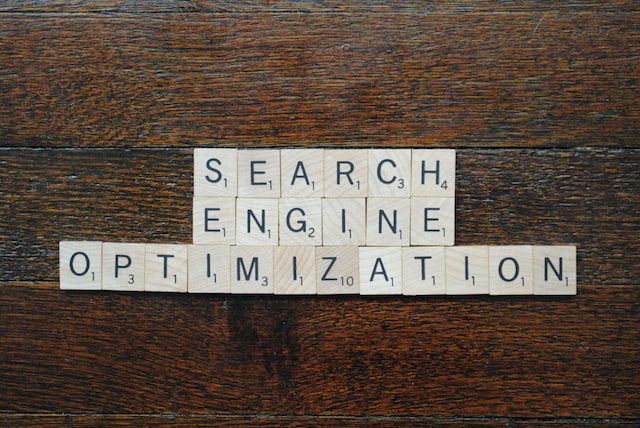SEO, or Search Engine Optimization, is the process of increasing a website’s traffic and prominence on search engine results pages (SERPs). In today’s technological era, SEO is a crucial part of any effective online advertising plan. An in-depth familiarity with search algorithms and user behavior is essential in such a dynamic and intricate industry.
Using SEO, you can improve your website’s appeal to Google and other search engines, which in turn should improve its position in the search engine results pages (SERPs). If you manage to get your name out there, you may see an increase in organic visitors that end up converting to paying customers. In this blog, we will cover the fundamentals of SEO and provide you with all the information you need to know to optimize your website and improve your search engine rankings.
Keyword Research
Keyword research is the first step in any SEO campaign. Finding out what people are looking for online in regards to your product or service is a crucial step. If you know what people are looking for when they search, you can tailor your content to attract that audience.
Google’s Keyword Planner, SEMrush, and Ahrefs are just a few of the tools available for use while researching keywords. You can learn more about the search volume, competition, and cost-per-click for potential keywords with the assistance of these tools.
On-Page Optimization
To make your website more search engine friendly, you can perform some on-page SEO. Among these techniques include the use of internal links and the optimization of both pictures and videos, as well as the optimization of the page’s content, title tag, meta description, and header tags.
The title tag is displayed in search engine results first, therefore it needs to be relevant to the page’s content and include your keywords of choice. A page’s meta description, which displays in search engine results, should be a concise yet informative overview of the page’s content.
You can use different sizes of header tags (H1, H2, and H3) to divide up a page’s information into manageable chunks. As header tags help search engines comprehend the structure of a website, their proper use is essential. Linking to different pages on the same website is known as internal linking. This improves your site’s structure and navigation, and it also helps search engines grasp the relationship between your content.
Using keyword-rich file names and alt tags, you may improve your image and video content’s visibility in search engines. Using alt tags, you may give search engines a textual explanation of what a picture or video is about.
Off-Page Optimization
The term “off-page optimization” describes the processes that take place away from your website. This includes link building, social media marketing, and influencer marketing.
Link building refers to the practice of attracting high-quality inbound connections to your site from authoritative resources. Having other sites link to your material shows search engines that they find it worthwhile and relevant. As a result, you may see an increase in natural search traffic and in your site’s overall position in search results.
Marketing on social media sites like Facebook, Twitter, and Instagram is called “social media marketing.” Gaining a larger audience for your products or services, attracting more visitors to your website, and maintaining communication with them are all possible thanks to the power of social media.
Influencer marketing involves partnering with influential individuals in your industry to promote your products or services. It’s a great way to get your name out there and gain some exposure.
Technical SEO
To make your website easily crawlable and readable by search engines, you need to perform technical SEO. This includes optimizing your website’s structure, site speed, mobile responsiveness, and crawlability.
Site structure refers to the way that your website is organized and how the pages are linked together. The crawling and indexing processes of search engines are facilitated by a site that is well-structured.
Site speed refers to the time it takes for your website to load. A slow website will hurt your ranks in search engines and frustrate your visitors. You may improve your website’s load time by using a fast hosting service, compressing your graphics and files, and taking advantage of browser caching.
Mobile responsiveness refers to the ability of your website to display correctly on a range of devices, including desktop computers, laptops, tablets, and smartphones. Considering the rise in mobile search, it’s crucial that your site is optimized for mobile users.
The term “crawlability” describes how easily search engines can access and index the pages on your site. You may improve your site’s crawlability by giving it a well-defined hierarchy, submitting a sitemap to search engines, and fixing any crawl issues that may crop up.
Content Marketing
Content marketing involves creating and distributing valuable and relevant content to attract and engage your target audience. Articles on blogs, infographics, videos, ebooks, and other formats fall into this category.
By establishing your company as an industry leader, helping your target audience, and attracting new visitors to your site, content marketing succeeds. Effective content requires thorough research, high standards of quality, and search engine optimization.
Measuring Your SEO Success
The success of your SEO efforts may be gauged by monitoring your site’s position in search engine results, the volume of organic traffic it receives, and the number of users who convert. Your website’s backlink profile and any updates to search engines’ algorithms should also be closely monitored. You’ll be able to fine-tune your SEO strategy and fix any problems that are brought to light.
Conclusion
Online businesses can benefit greatly from SEO. If you take the time to learn the fundamentals of search engine optimization (SEO), you can position your site as a reliable resource, both for users and search engines. The success of your SEO campaign is like a jigsaw puzzle; it can’t be solved until all the pieces are in place. Remember, SEO is a journey, not a destination, so continue to learn and adjust your strategy as search engines evolve. With dedication and a little bit of creativity, the possibilities are endless.







